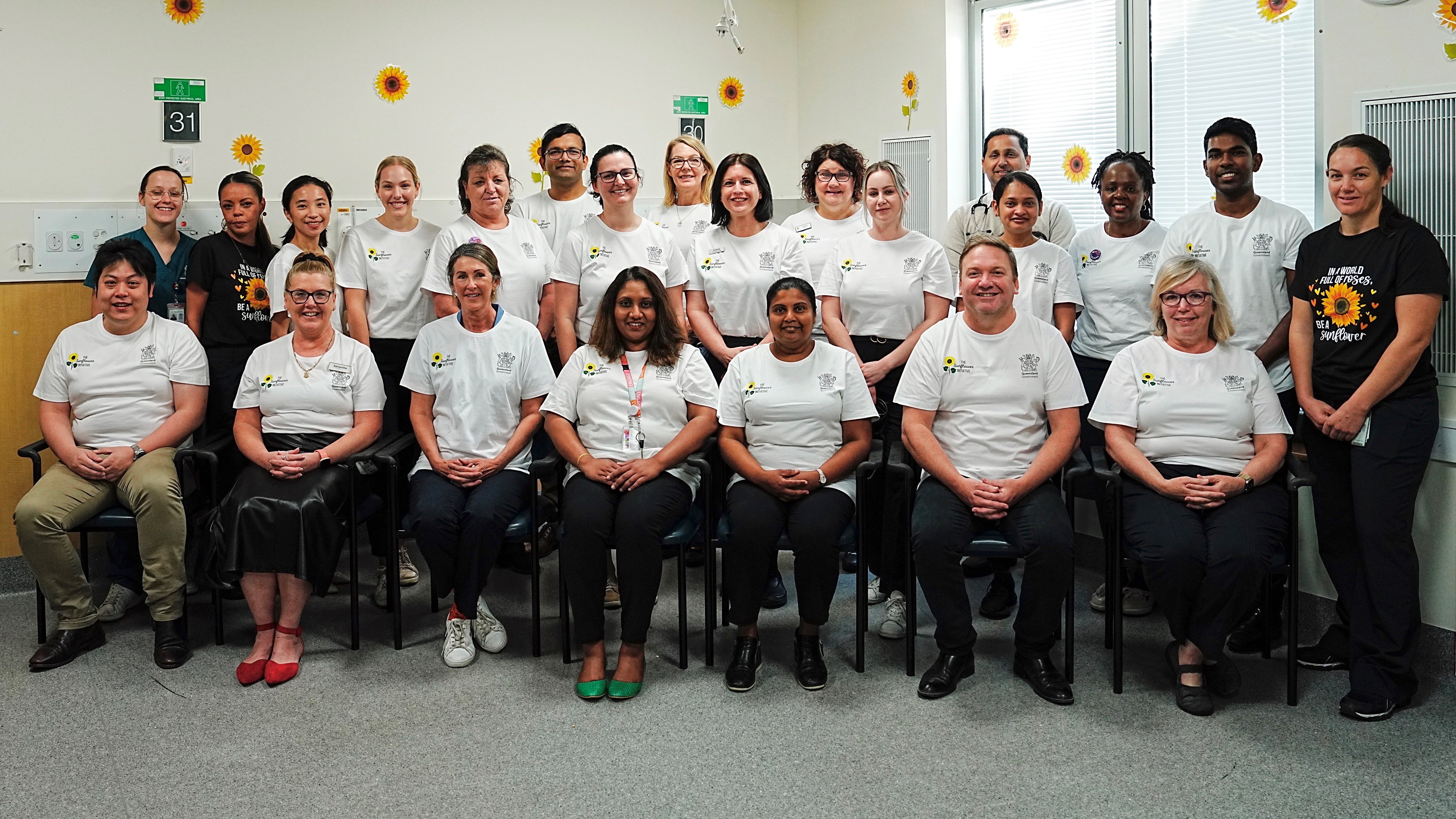Spring is in the air with sunflowers ready to bloom across Ipswich Hospital.
From Friday, 1 September, Ipswich Hospital will trial the Sunflower Initiative, a project to help patients who have cognitive impairment and a history of delirium and falls.
 During the three-month trial, sunflower stickers will be put on the wristbands of these patients to ensure their condition is easily identified by all staff they encounter.
During the three-month trial, sunflower stickers will be put on the wristbands of these patients to ensure their condition is easily identified by all staff they encounter.
Project leader Dr Champa Ranasinghe said the Sunflower Initiative would support clinical handovers and multidisciplinary care for these priority patients.
"It will ensure we have appropriate medical and nursing interventions and early involvement of a multidisciplinary team to improve care," Dr Ranasinghe said.
"The sunflower team is comprised of medical, allied health, nursing and operational staff working in the emergency department and across the hospital in all clinical areas who care for older patients.”
The team will look after all aspects of patient care, from delirium management, and falls risk assessments to medication reviews and advanced care planning.
Dr Ranasinghe said the sticker symbolised significant behind-the-scenes preparation for appropriate treatment. She said emergency department consumers suspected of cognitive impairment or delirium or at risk of falls would be immediately assessed. If they were found to be at risk they would be referred to appropriate teams.
Dr Ranasinghe said this immediate identification would lead to a reduced stay in the emergency department and their overall hospital stay.
West Moreton Health Chief Executive Hannah Bloch praised staff for developing the initiative.
“Projects such as this Sunflower Initiative highlight how having early identification of at-risk patients can improve quality of life for some of our most vulnerable consumers," Ms Bloch said.
"Everyone, from operational and administration staff to nurses, doctors and allied health staff, will see the sunflower stickers and know how to best support the patient during their hospital stay."
